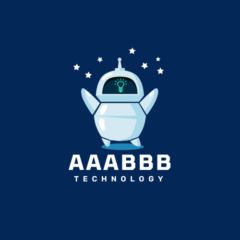Real-Life Examples of AI: How It’s Transforming Our World
AI, or artificial intelligence, has become an integral part of our daily lives. From virtual assistants like Siri and Alexa to recommendation systems on platforms like Netflix and Amazon, AI is everywhere. This article explores real-life examples of AI and how it’s transforming industries and everyday experiences.
1. AI in Healthcare: Revolutionizing Medicine
1.1 Medical Imaging Analysis
AI-powered tools are revolutionizing medical imaging by analyzing scans with unprecedented accuracy. For instance, algorithms can detect early signs of diseases like cancer or heart conditions, enabling timely treatment. Learn more about AI in healthcare.
1.2 Personalized Treatment Plans
AI helps tailor medical treatments to individual patients based on their genetic makeup and health history. This approach improves outcomes and reduces side effects.
2. AI in Transportation: Smart Vehicles and Traffic Management
2.1 Autonomous Vehicles
Self-driving cars are no longer a futuristic concept but a reality. Companies like Tesla, Waymo, and others are leading the charge in developing autonomous vehicles that use AI to navigate roads safely.
2.2 Intelligent Traffic Systems
AI-driven traffic management systems optimize traffic flow, reduce congestion, and lower emissions. These systems leverage real-time data from sensors and cameras to make informed decisions.
3. AI in Retail: Enhancing Shopping Experiences
3.1 Recommendation Systems
E-commerce platforms use AI algorithms to suggest products based on user behavior. For example, Netflix recommends shows or movies, while Amazon suggests items you might like based on your purchase history.
3.2 Inventory Management
AI helps retailers predict demand and manage inventory efficiently, reducing waste and ensuring products are available when customers need them.
4. AI in Education: Personalized Learning
4.1 Adaptive Learning Platforms
Educational platforms powered by AI adapt to students’ learning pace and style, offering personalized lessons and assessments. This approach enhances engagement and academic performance.
4.2 Virtual Tutors
AI-powered virtual tutors provide instant help with homework or study topics, making education more accessible and convenient.
5. AI in Finance: Fraud Detection and Trading
5.1 Fraud Prevention
Banks and financial institutions use AI to detect suspicious transactions and prevent fraud. Machine learning algorithms analyze patterns and flag potentially fraudulent activities in real-time.
5.2 Algorithmic Trading
AI-driven trading systems analyze market data and execute trades at speeds humans cannot match, optimizing investment strategies and maximizing returns.
Key Takeaways
- AI is transforming industries across the board, from healthcare to finance.
- Real-life applications of AI include personalized medicine, autonomous vehicles, smart traffic systems, recommendation engines, adaptive learning, fraud detection, and algorithmic trading.
- As AI continues to evolve, its impact on our lives will only grow more significant.
By embracing these innovations, we can harness the power of AI to create a better, more efficient future.

Leave a Reply